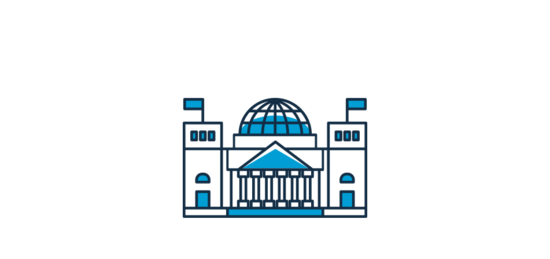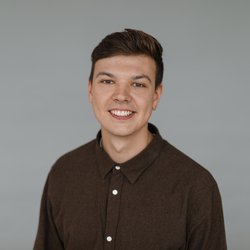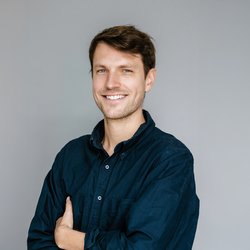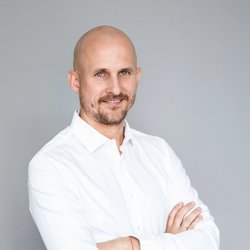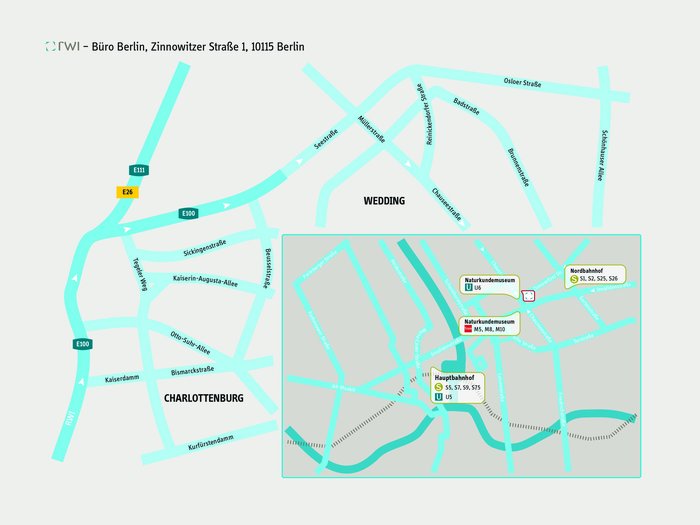BÜRO BERLIN
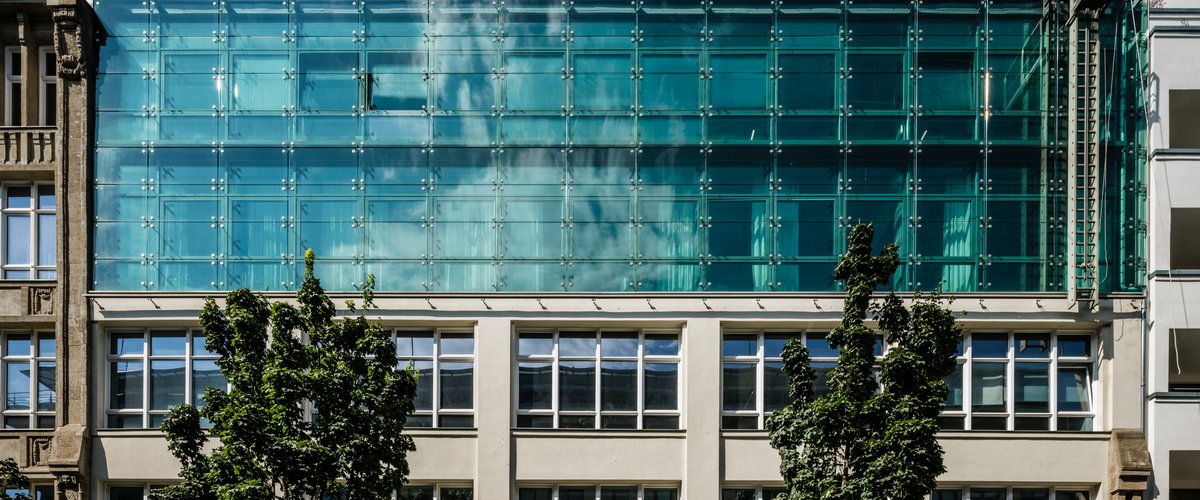
RWI in Berlin: Wissenschaft trifft Politik
Das RWI – Leibniz-Institut für Wirtschaftsforschung verbindet am Standort Berlin seit 2007 wirtschaftswissenschaftliche Forschung mit praxisnaher Politikberatung. Unser Berliner Büro stärkt die Präsenz des Instituts in der Bundeshauptstadt. Wir bauen Brücken zwischen Forschung und Politik.
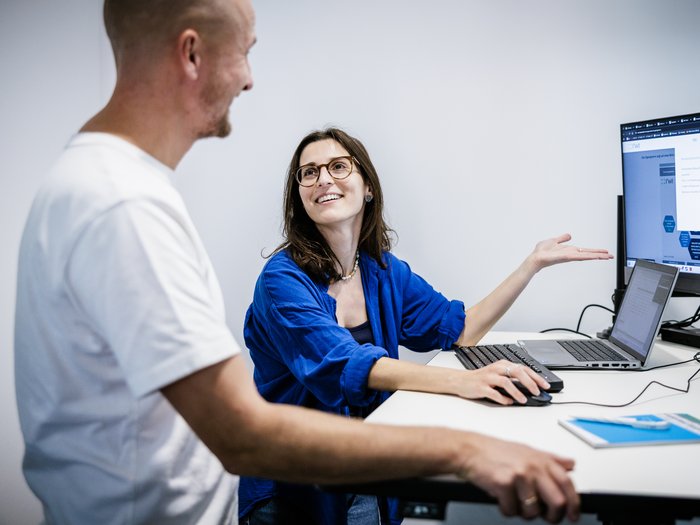
Doppelte Expertise: Wissenschaftliche Vernetzung und Politikberatung
Das Team in Berlin arbeitet eng mit Berliner Universitäten zusammen und kommuniziert Forschungsergebnisse direkt an Entscheidungsträgerinnen und Entscheidungsträger. Politikerinnen und Politiker, Medienschaffende und andere Akteurinnen und Akteure finden bei uns kompetente Antworten auf ökonomische Fragen.
Das Team besteht aus Wissenschaftlerinnen und Wissenschaftlern aller RWI-Kompetenzbereiche sowie aus den Forschungsgruppen Globale Migration und Mikrostruktur von Steuer- und Transfersystemen.
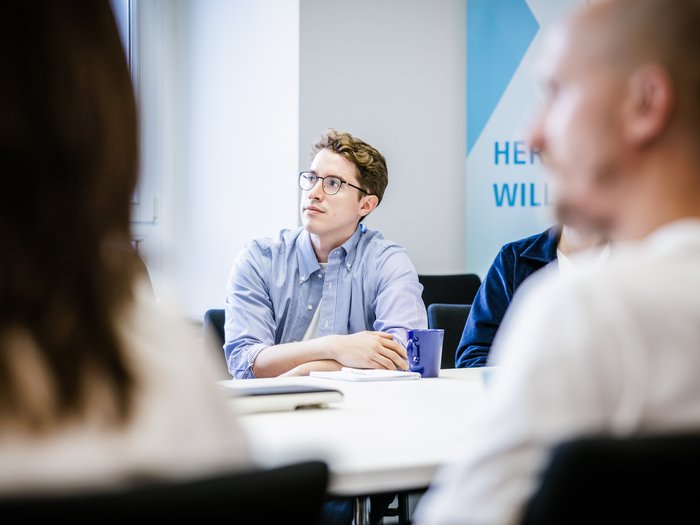
Aktive Netzwerkarbeit in der Forschungslandschaft
Das RWI Berlin Network Seminar lädt seit 2023 regelmäßig führende Wissenschaftlerinnen und Wissenschaftler aus Berlin und Umgebung ein. Interessierte können nach Anmeldung teilnehmen.
Weiterhin koordinieren wir zusammen mit unseren Partnerinstitutionen wichtige Berliner Forschungsnetzwerke und Seminarreihen:
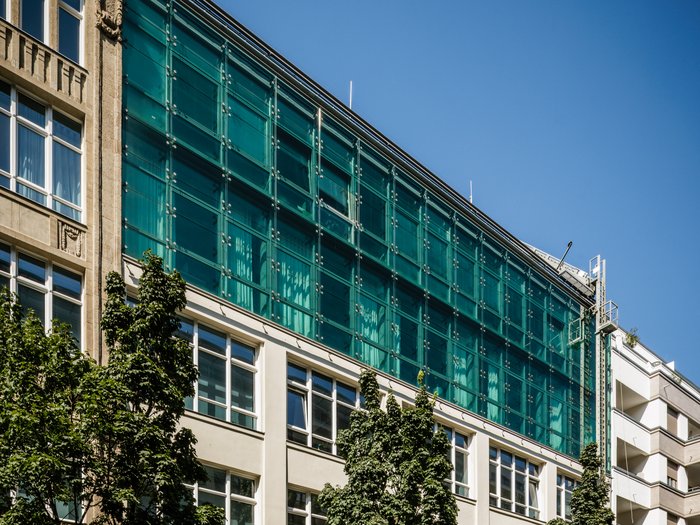
Wissenstransfer durch Veranstaltungen
Unser Büro Berlin organisiert Konferenzen, Workshops und Dialogformate zu aktuellen wirtschaftspolitischen Themen. Wir bringen Forschung, Politik und Gesellschaft ins Gespräch.
Bei RWI Impuls finden Sie einen vertraulichen Raum für wissenschaftlich fundierte Politikdiskussionen. Hier treffen Forschung und Entscheidungsfindung direkt aufeinander. RWI Impuls ist unser exklusives Round-Table-Format in Berlin.
Wenn Sie mehr über unsere Veranstaltungen erfahren möchten oder an unserem Netzwerkseminar teilnehmen wollen, kontaktieren Sie uns unter Claudia.Schmiedchen@rwi-essen.de.
Kommende Veranstaltungen
Referentin: Izabela Wnuk-Soares (Rockwool Foundation/DIW)
Ort: Hybrid – Berliner Büro und Teams-Veranstaltung
Zeit: 13:30 Uhr – 14:30 Uhr
Titel: tba
Referent: Moritz Lubczyk (ROCKWOOL Foundation Berlin)
Ort: Hybrid – Berliner Büro und Teams-Veranstaltung
Uhrzeit: 13:30 Uhr – 14:30 Uhr
Titel: tba
Referent: Sevrin Waights (HU Berlin)
Ort: Hybrid – Berliner Büro und Teams-Veranstaltung
Uhrzeit: 13:30 - 14:30 Uhr
Titel: tba
Referentin: Johanna Arlinghaus (Hertie School)
Ort: Hybrid – Berliner Büro und Teams-Veranstaltung
Uhrzeit: 13:30 - 14:30 Uhr
Titel: tba
Büroleitung
Kontakt
RWI – Büro Berlin
Zinnowitzer Str. 1
10115 Berlin
Tel.: (030) 2021598-11
Fax: (030) 2021598-19
